YouTube stars Dan Howell and Jessica Kellgren-Fozard on homophobes and radical queer bravery
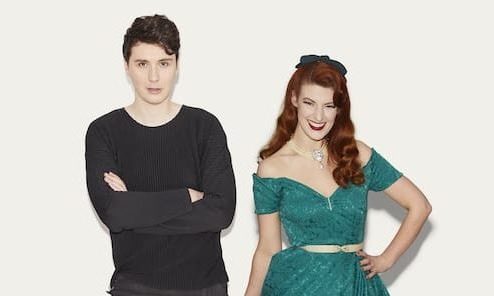
LGBT+ YouTube stars Dan Howell and Jessica Kellgren-Fozard. (YouTube/ Henry J Kamara)
YouTube stars and LGBT+ influencers Dan Howell and Jessica Kellgren-Fozard on how they and their queer fans have helped each other through “radical bravery”.
Dan Howell, a comedian and one of world’s most popular YouTubers, and Jessica Kellgren-Fozard, lesbian YouTube star and disability advocate, have had vastly different experiences as queer content creators.
The two LGBT+ YouTubers spoke to PinkNews to mark the launch of The Rise, a YouTube campaign that celebrates diverse UK creative talent on the platform.
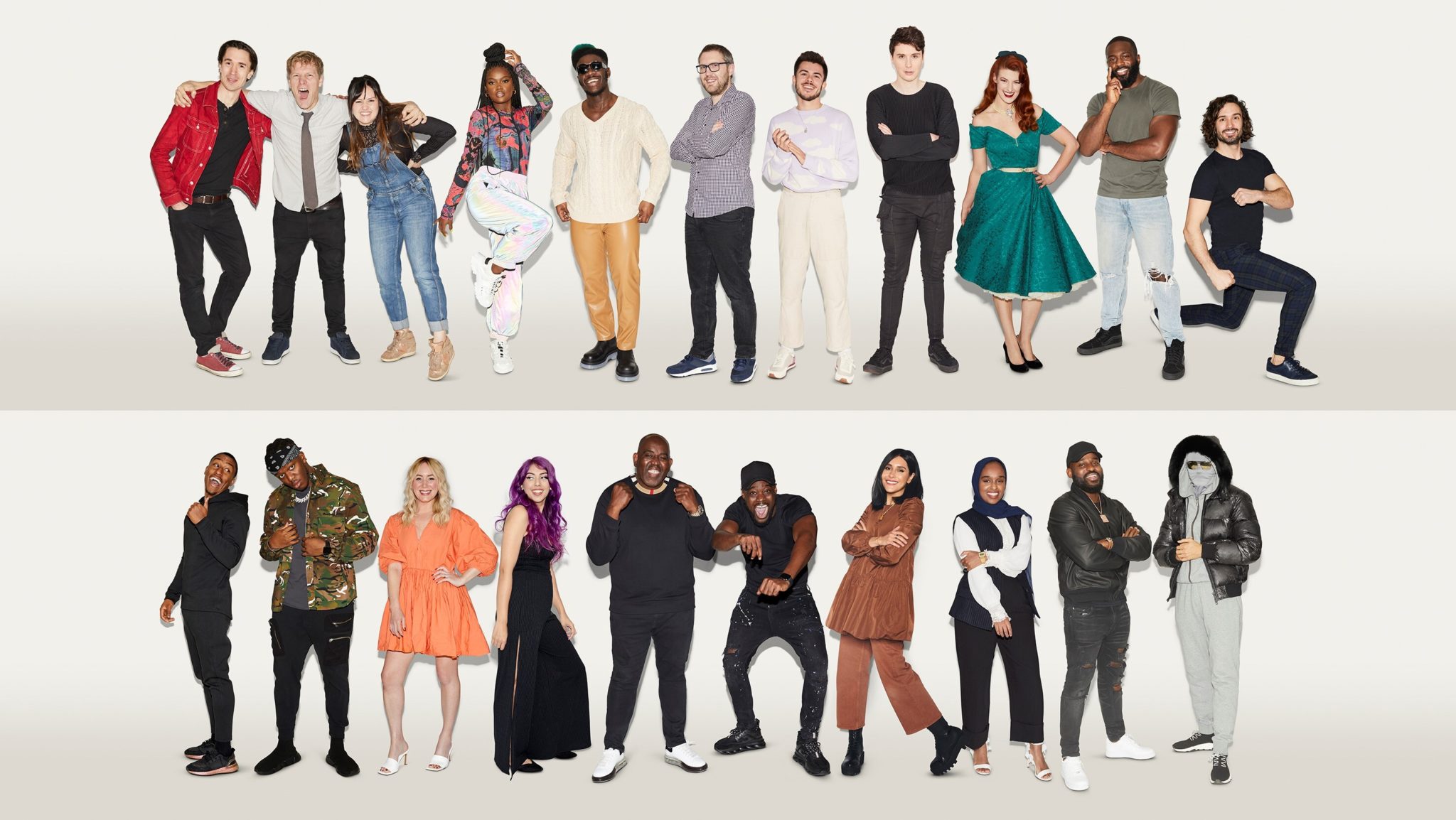
YouTube’s new campaign The Rise is a celebration of British creative talent featuring some of the platform’s pioneers like Robbie Lyle of AFTV, Colin Furze, Daniel Howell, Yasmin Uddin of Yammy, Dina Tokio and Jay Flynn MBE as well as some of the UK’s most exciting rising talents. (YouTube)
Having already made YouTube videos for 10 years, Dan came out publicly in June 2019, in a 45-minute video titled “Basically I’m gay”.
He described his coming out story as “very strange”, and told PinkNews: “Me already being this kind of obnoxiously, omnipresent public figure, I had to kind of go on this process.
“I’ve known how gay I was since forever, but had to go on the whole journey of not just working out how I would communicate that to the world, but truly reaching a point of self-acceptance.
“Because on some level throughout all of my life, I’ve accepted it but not really acknowledged it. I said: ‘I’m not ready yet, now’s not the time, I don’t know how.'”
Jessica, on the other hand, explained that she has “never struggled” with her sexuality, having always known she would be accepted.
“I have a very different coming out story to most LGBT+ people in that I was raised in a Quaker family, and there was never the expectation that I was going to grow up and get a husband and that this was the way things happened… So I’ve never struggled with my sexuality in that way,” she said.
While Jessica uses her online platform to discuss her life as an LGBT+ person as well as queer history, much of her audience comes to her channel for her disabilities advocacy.
She has two rare genetic conditions, HNPP and EDS, which affect her nerves and connective tissues. She is deaf, visually impaired and her conditions can affect her mobility with varying severity.
“Being a disabled and chronically ill teenager, I had this big thing in my life that was really difficult, and a real struggle, and being gay just paled in comparison,” she said.
“There was obviously the drama, the girls that I liked didn’t liked me, they always turned out to be straight. But that was the biggest drama.
“When I started YouTube, I was already married, it was already very much like, this is who I am. I’m gay, this is my wife. There’s no question. There’s no worrying about it.”
She added: “I like to think that that does, in a way, represent what our future is going to be – that we don’t have to have these coming out stories where people worry about how they’re going to be accepted, and worried about the response they’re going to get.”
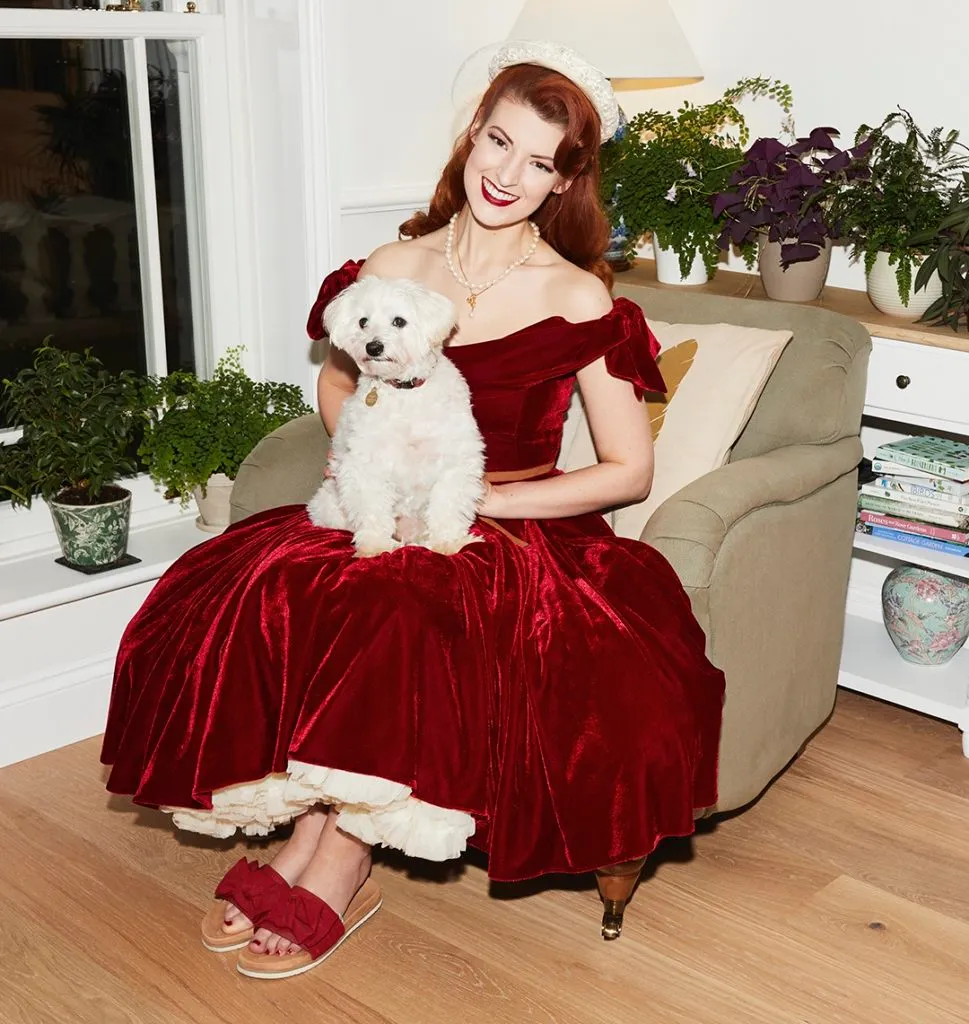
(YouTube/ Henry J Kamara)
Dan Howell wishes he’d had queer role models like Jessica Kellgren-Fozard when he was growing up
Dan Howell said that YouTubers like Jessica Kellgren-Fozard could have helped him immensely when he was discovering his LGBT+ identity.
“If there was someone like Jessica when I was a young person watching YouTube, I just know I would have had a profoundly different journey through life and coming to accept my sexuality,” he said.
“I would have been represented, I would have learned about queer history, I would have been seeing different relationships, seeing different personalities.”
From LGBT+ issues to disabilities and mental health, both Dan and Jessica have used their platforms to share their experiences in areas that are vastly underrepresented in mainstream media, showing their viewers many facets of their identities.
In 2017, Dan used his YouTube channel to discuss his struggle with his mental health, in a video titled “Daniel and Depression”.
“There’s many aspects to a human,” he said. “I’ve always come from a place of just talking about whatever’s on my mind, or whatever is important to me.
“It was quite a jump for me to make that first video about mental health, opening up about depression out of nowhere was quite scary. Because even three or four years ago, it was still more of a taboo topic.
“I tried to do it in my own way, which is to kind of inappropriately joke about it at my own expense, and try to make it a storytelling experience. That’s just the same as everything else I do.”
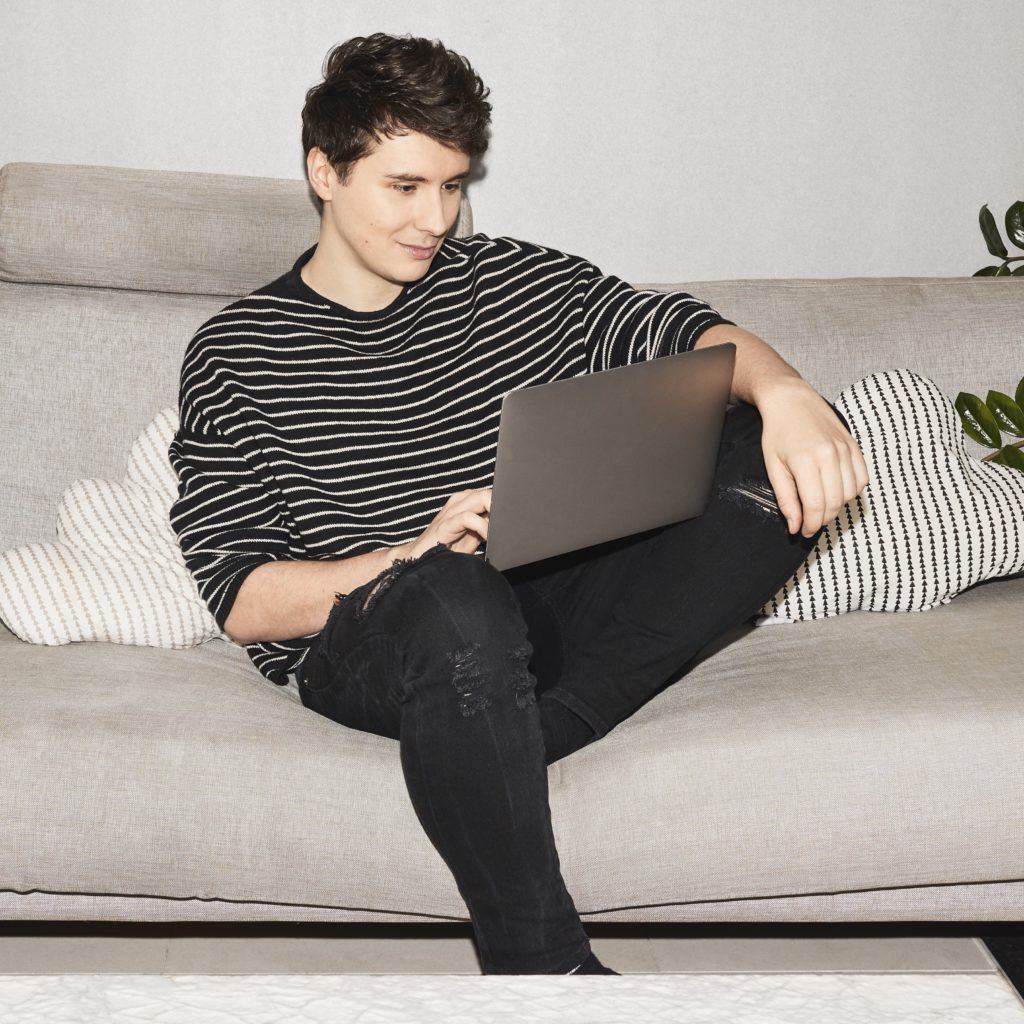
(YouTube/ Henry J Kamara)
Jessica said that from her point of view, “the best representation is always ‘happens to be'”.
“It’s the idea that you have a character who’s going on an adventure, you have someone who’s talking to you about makeup, and they just happen to be gay. Because otherwise we’re not really going to be reaching outside of our own echo chamber.”
She explained that some viewers end up watching 10 of her videos without ever realising that she’s married to a woman, which she thinks is “the best way to kind of have any change and effect on the culture and and people in the world”.
“Because if we’re always trying to preach to the choir, we’re not really going to get anywhere,” she said.
“But if people are thinking so-and-so on TV is absolutely amazing and then later find out that they’re gay, maybe they’ll be changing some preconceived notions.”
“It’s this kind of sneaky, insidious way that the gay agenda will thrive and inevitably take over the world,” laughed Dan. “Winning hearts and minds.”
One particularly heartwarming example, Jessica said, was when a fan used her videos to come out to their parents.
“She was raised in a very religious household and her parents were not at all open to the idea of homosexuality. In fact, if they were watching television, and something came up relating to the subject, they would immediately turn it off, change the channel, perhaps say something wasn’t particularly lovely.
“She was sat there feeling like, ‘Oh, am I ever going to come out my parents?'”
The fan decided to curate a playlist of Jessica’s videos to show her mother.
“It started with videos that I made about my religion,” she said, “and then transitioned to fashion and videos about history. And just slowly, each video was a slightly gayer video.”
“Her mother became a fan within the first 20 videos. She was like: ‘This seems like a good role model for my child.’
“Eventually [she realised] this role model has a wife and is gay, and is OK with this. And her parents are religious and OK with her being gay… I was able to provide a tool for someone to do that to come out in quite a safe way to their parents.”
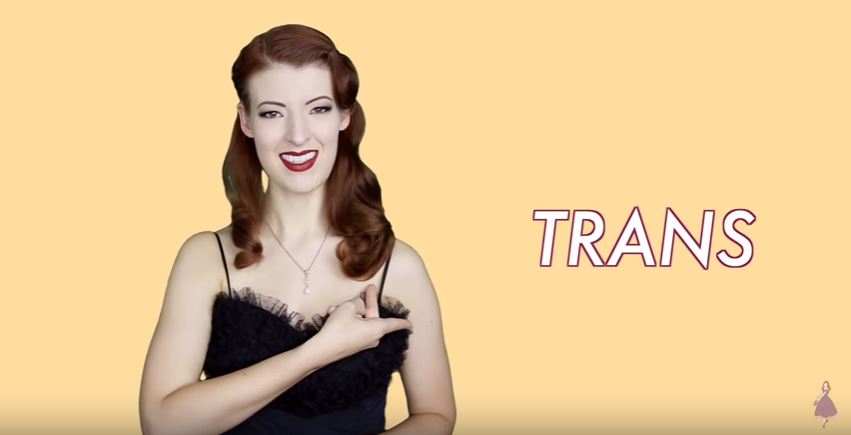
Jessica teaching queer sign language. (YouTube)
The ‘radical bravery’ of his queer fans helped Dan Howell come out
Dan Howell, on the other hand, said that his fans were the ones who helped him feel safe to come out.
While still in the closet, he said he found it “difficult” that viewers saw him as someone who was always “open and honest” with them, especially after sharing his experience with depression.
“I went on a world tour in 2018… I was doing these meet and greets, and people would genuinely pour their hearts out to me, and they would talk about everything they were going through in their life,” he said.
“They would talk about illness, they would talk about mental health. And so many people talked about sexuality, just because the community that had been created had this attitude of acceptance and growth and coming together and wholesomeness.”
While he understands that there was “no presumption [he] was a homophobe”, he found it confusing when people would tell him that he had inspired them to come out.
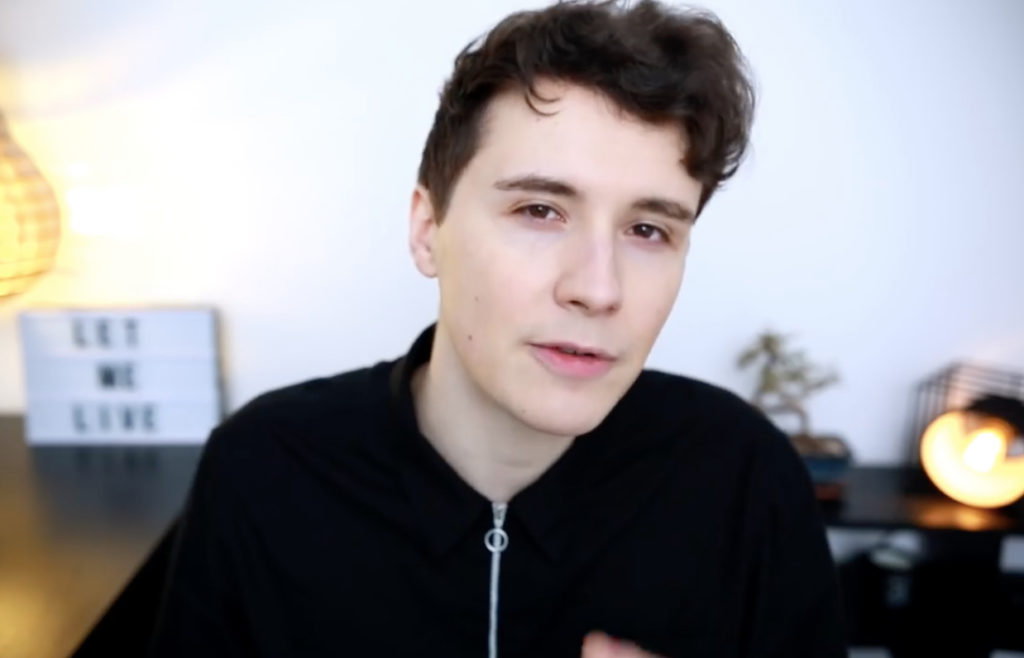
Daniel Howell. (YouTube)
“It was difficult, because I stood there feeling like I was a sham. People were saying: ‘I feel strong enough to say this to you, because you’ve been so open and vulnerable to me.’ And I was just stood there like: ‘Well, actually, I feel like there’s the biggest part of me that I haven’t even yet gone on the journey to acknowledge myself.’
“I mean, I’ve had people that came out to me in front of their parents, because they felt like they were in a safe environment, and that’s crazy.
“The radical bravery of some of these people is what made me think if I was feeling like a little scared dog in my apartment, looking in the mirror like a chihuahua, thinking: ‘How am I ever going to come out publicly at this stage of my life?’ I would think well, actually, look at the younger generation.”
In the ‘chaos’ of the internet, queer YouTubers like Dan Howell and Jessica Kellgren-Fozard building valuable communities.
While the internet can be a scary place for queer folk, Dan Howell and Jessica Kellgren-Fozard are determined to use it to build community and acceptance.
“I think that we don’t talk enough about the wonderful sides of the internet,” said Jessica.
“How it allows people to come together and create a community, how it gives us access to education that might before been blocked to us, how we’re able to actually learn from people who come before us.
“I really like talk about queer history, because we’re one of the only communities and minorities that can’t pass down out knowledge through the generations. Because you know, gay people don’t necessarily have gay kids.
“We often miss out on learning from our elders and learning what’s come before us. And I think it’s really important and lovely that we talk about and validate and really cherish these communities that are available to us on the internet.”
Dan added: “When you look at the chaos of the internet and various online communities, I think it is good to see when people are creating content that can make people feel better.
“For all of the terrifying chaos of the freedom of the internet and creating on YouTube, it also lets people emerge that may not have been represented, you can create the content that you wish someone was making for you.
“And I think that’s one of the best things.”

